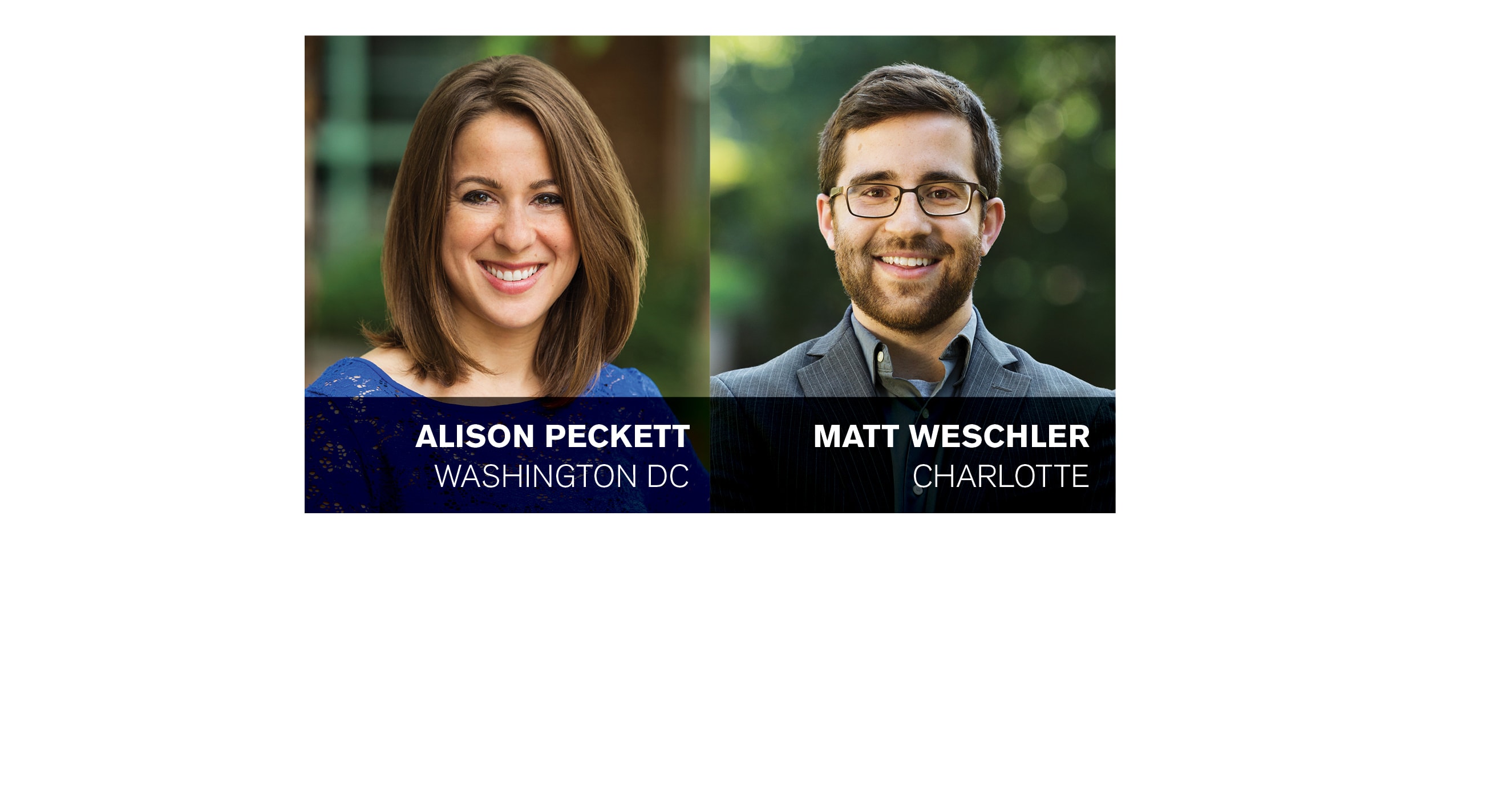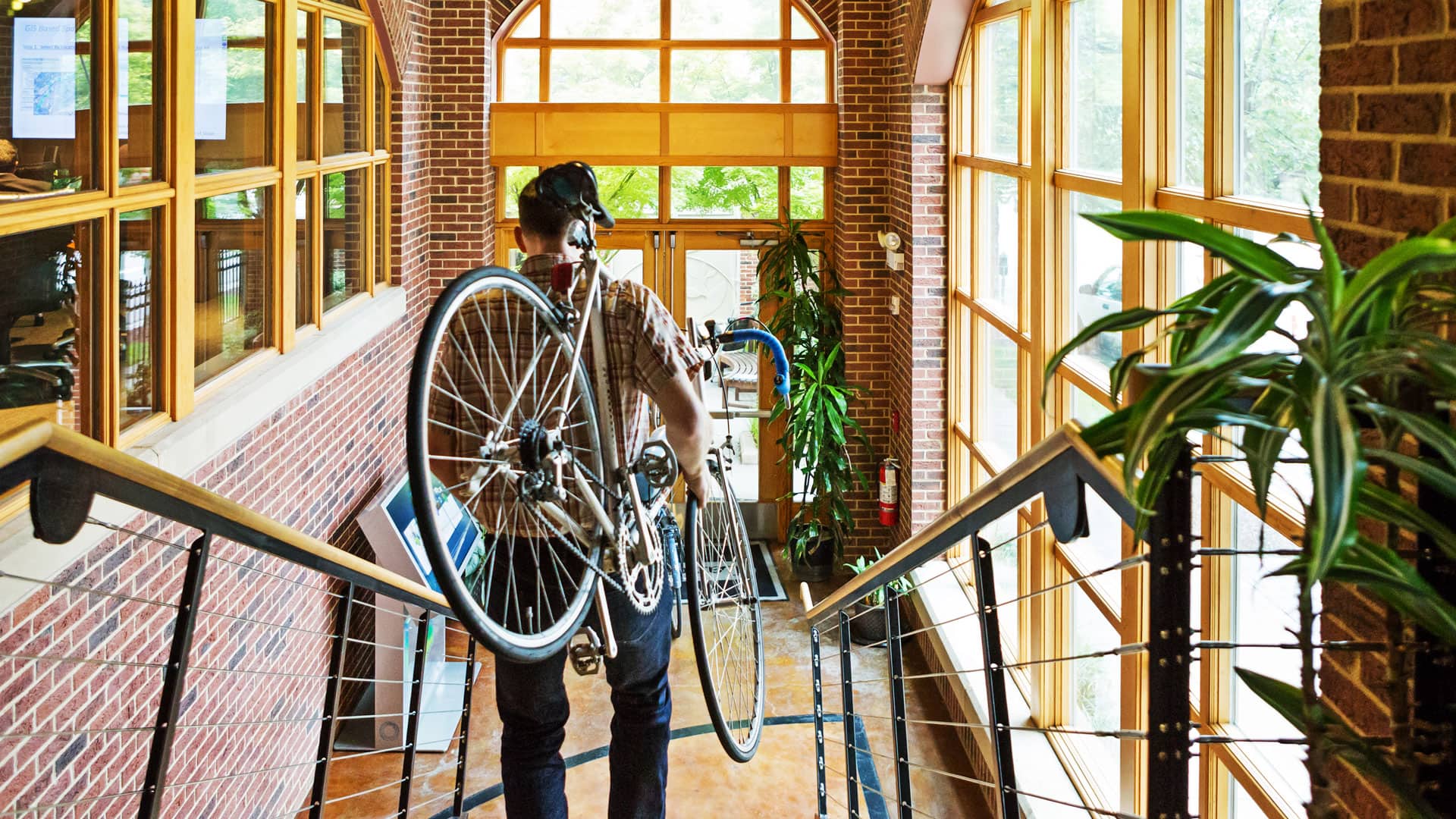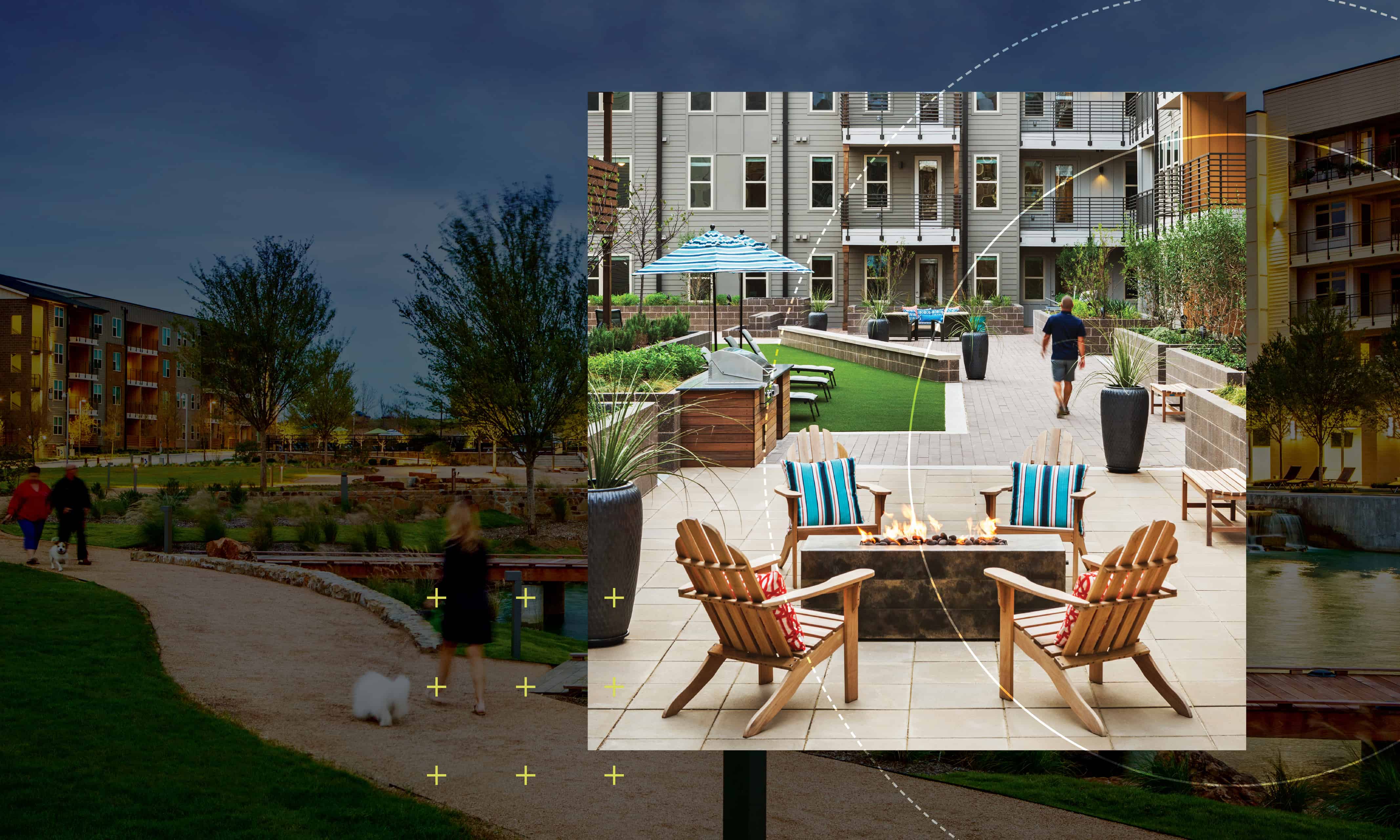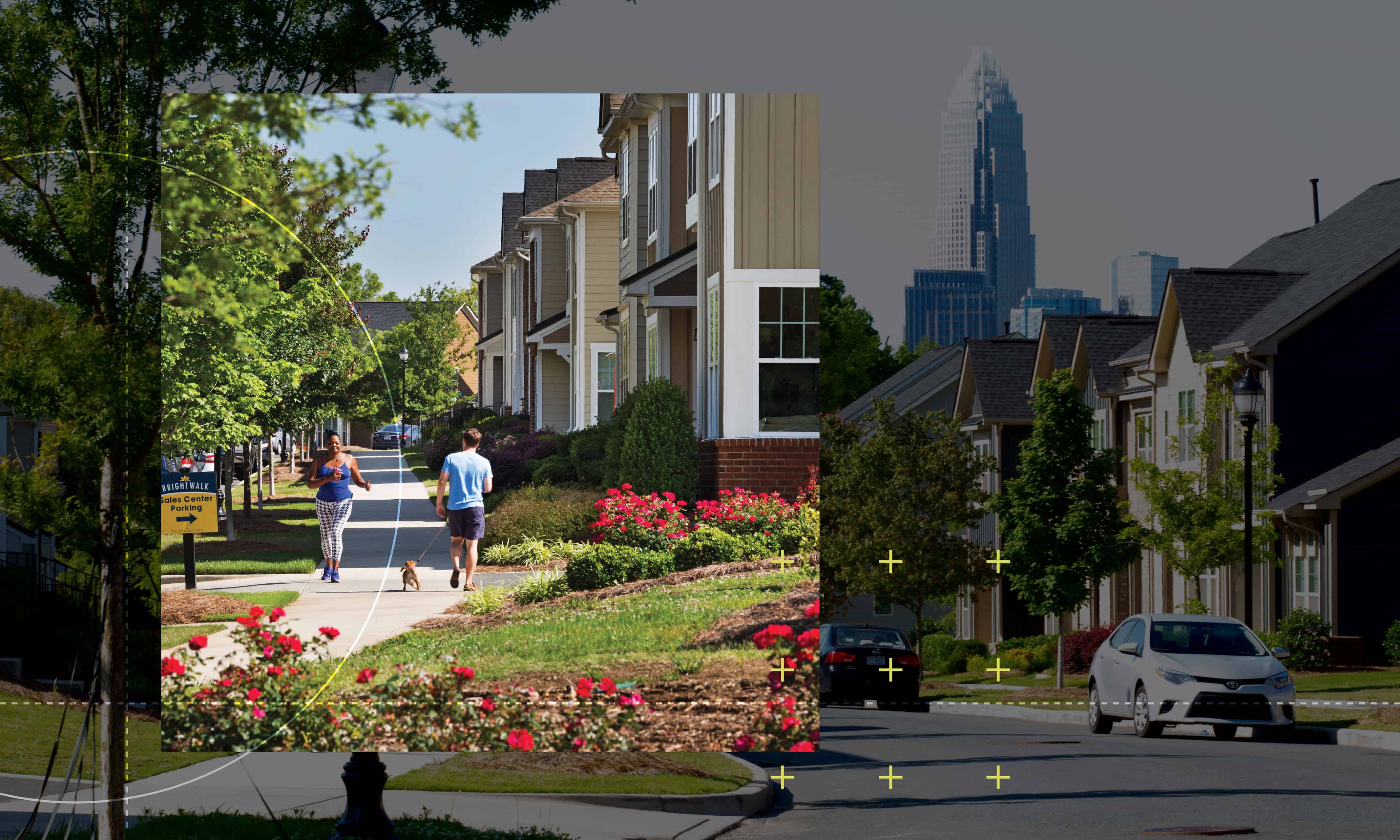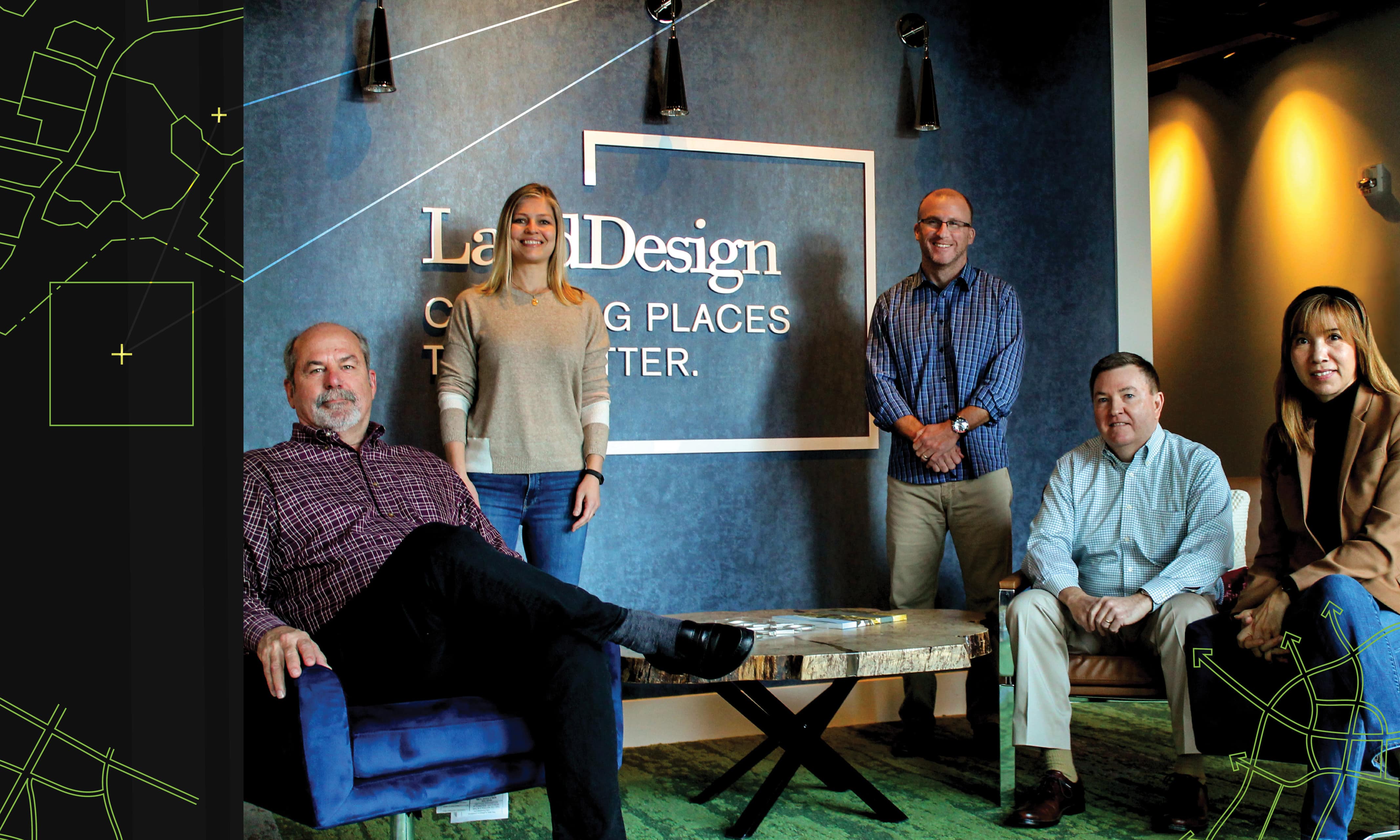Alison participates in National Bike to Work Day each year with co-workers in what she describes as “a bike gang of landscape architects rolling deep through the streets of Alexandria.”
Bike-friendly places matter.
Bike To Work Day is part of a national movement to make America bike friendly. What does that mean? It means a strong bike culture that welcomes and celebrates bicycling along with creating safe and convenient places to ride and park. In honor of the occasion, meet two members of LandDesign who are local trailblazers for the bike-friendly movement and help carry the torch for our firm’s bike culture.
- Alison Peckett is a landscape designer in the firm’s Washington, D.C. office. A positive attitude matters. Being socially and environmentally conscious matters.
- Matthew Weschler is a civil engineer designer in our Charlotte office. Travel and adventure matter. Complete neighborhoods matter. Freedom of expression matters.
What sparked your passion for bicycling?
For Alison, it certainly was not the repetitive bike rides around her suburban neighborhood cul-de-sac as a child! As an urban designer and environmentalist though, she’s studied the influence that innovative transportation planning can have on cities and the important role bikes play in community design. “I’m fortunate to live and work in Washington, D.C.; a city that promotes a bike-friendly lifestyle.”
Conversely, Matt grew up in a neighborhood on top of a really tall hill. “One of his favorite activities was riding to the top of my neighbor’s driveway and racing my friends to the bottom of our street. I still feel that thrill when I’m coasting down hills in Charlotte.”
What type of bike do you own?
Matt owns a Kona Dew Deluxe, a lightweight nine-gear hybrid bike with hydraulic brakes that he describes as “a nice commuter bike.”
Nothing so fancy for Alison who owns an old vintage red Schwinn road bike that is her main source of transportation. “A wise bike mechanic once told me the key to a good city bike is finding something that is dingy enough that no one wants to steal it, but also decent enough that you can use it to zip around town. Once you achieve this equilibrium, you’re golden.”
Alison also has a bike share membership (a short-term bicycle rental program). “Most mornings, I walk to a bike share, bike share to the metro station, then take the metro to work. It seems kind of nutty to most people, but it is this seamless synergy of all these modes of transportation that makes living in the city so fun.”
What is your most memorable/interesting bicycling trip?
For Alison, it was a bucket-list solo bike trip through Berlin, Amsterdam and the tulip fields of Holland. “I essentially planned the entire trip around this one single activity.” Alison was struck by the region’s biking culture where bike lanes were seamlessly integrated into every roadside and neighborhood, allowing her to navigate through several small towns to her dream destination: Keukenhof, the largest tulip park in the world where more than 7 million flower bulbs are planted each year.
Matt’s most memorable bike trip is still before him. “While it’s high on my to-do list, I have yet to undertake a bike-packing trip.” In the meantime, he enjoys interesting monthly group bike rides with fun themes as a “Sushi Roll” biking tour of Charlotte’s sushi restaurants and the “Tour-de-Dough” ride to some of the city’s many fine donut shops.
How are you active in support of making Charlotte/DC-Alexandria a great bicycling community?
Matt supports car(e)free streets including volunteering for the recent Open Streets event in his Elizabeth neighborhood. The event featured local nonprofit groups, government agencies and businesses all aimed at educating the public about efforts to make Charlotte a friendlier place for people to walk and bike. “The streets were closed to all vehicular traffic, and opened up for pedestrians and cyclists to roam free. It was inspiring to meet so many people working on this critical problem.”
Alison helps organize the Potomac ASLA’s Landscape Architecture Bike Tour that takes riders throughout D.C. to experience several notable design landmarks around the district. “This is always a fun event to see the city by bike and share the importance of what we do with the larger community.” She also participates in National Bike to Work Day each year with co-workers in what she describes as “a bike gang of landscape architects rolling deep through the streets of Alexandria.”
Bike friendly communities require a welcome and supportive infrastructure, including well-connected bicycling networks, quiet neighborhood streets and shared use trails. What bike-friendly aspects of your community do you enjoy most and why?
Allison believes bikes are an indicator of the vibrancy of an urban area, and Washington, D.C. does not disappoint. “Within minutes, I can be riding through the lush forested canopy of Rock Creek Park and then suddenly be among the monuments on the National Mall.”
She is also the rare person who loves her commute to work, often joined by co-worker Lisa Biddle. “We always look forward to beautiful days when we can hop on our bikes and ride to work along the Mt. Vernon Trail; a greenway that winds along the Potomac River. No matter how your day goes, you always know it will end with a beautiful ride home, especially the approach to city with the Washington monument and Jefferson Memorial illuminated in the background. I definitely don’t take for granted that I live in a city that allows me to do this.”
Matt also commutes to work on two wheels using a bike path behind his house, often stopping to enjoy the cooler air and quiet separation from heavy traffic. Sometimes, he takes a detour on the way home, hopping on the Little Sugar Creek Greenway, one of LandDesign’s iconic projects. “Even though it runs right through the heart of midtown Charlotte, it still feels like a break from the city’s constant movement.”
In her work at LandDesign, Alison is finding that more clients are realizing the value of “bikability,” including several municipalities that have strict requirements for bike infrastructure and parking. “There is a strong relationship between the urban projects we design and their accessibility by biking or other alternative forms of transportation.”
“Biking has the power to create mobility and accessibility for everyone as an efficient and affordable means of transportation. Our role as landscape architects is directly tied to this, where we play an instrumental role in helping transform cities into more socially inclusive and viable places to live.”
